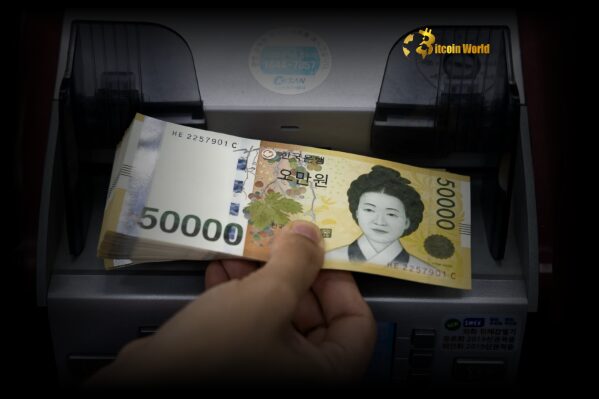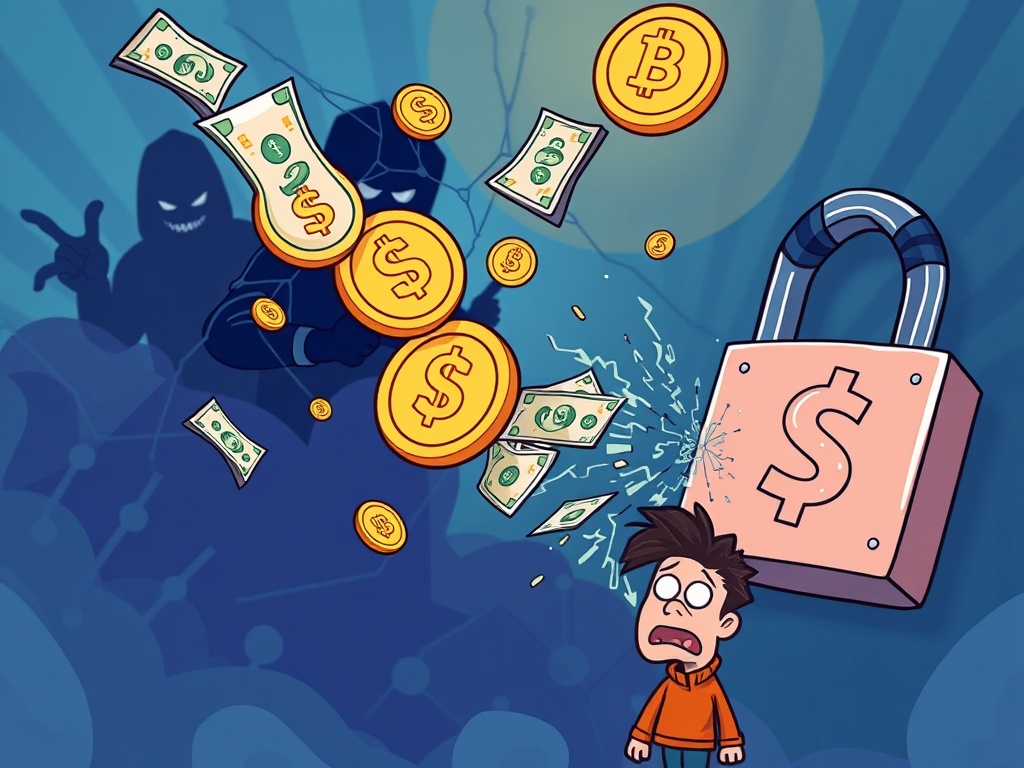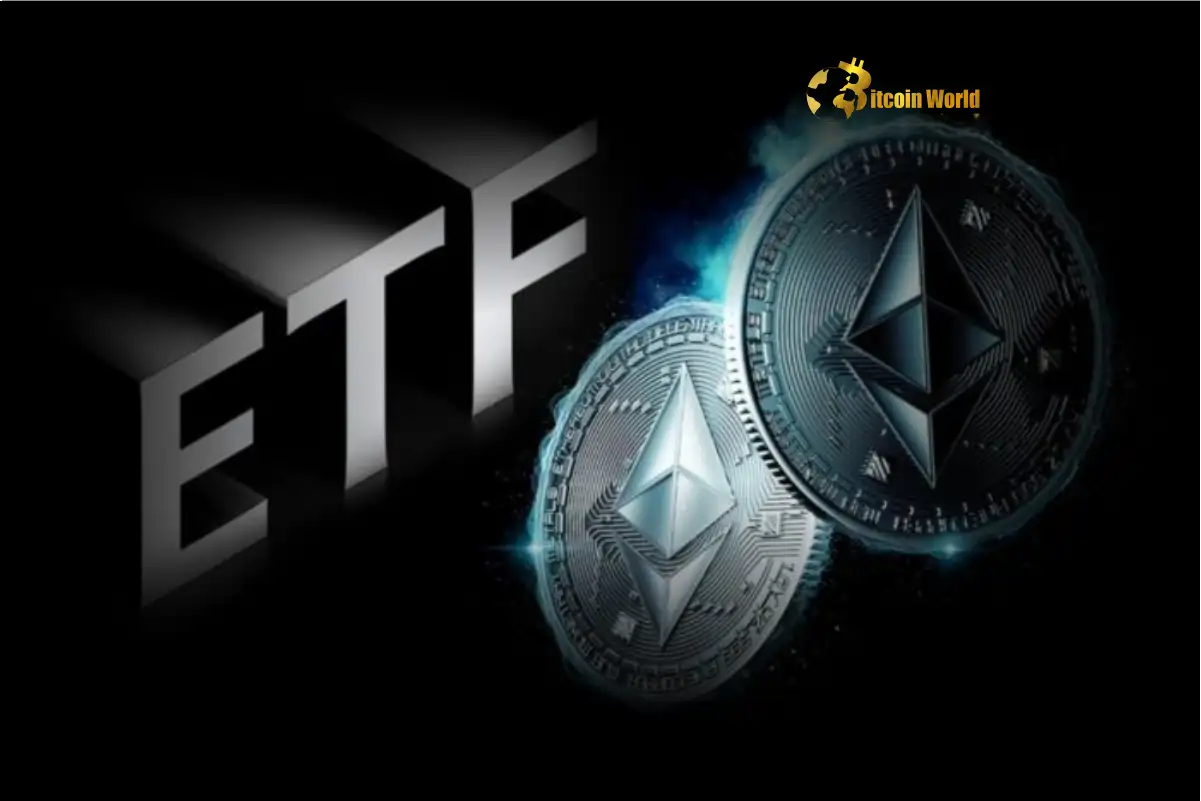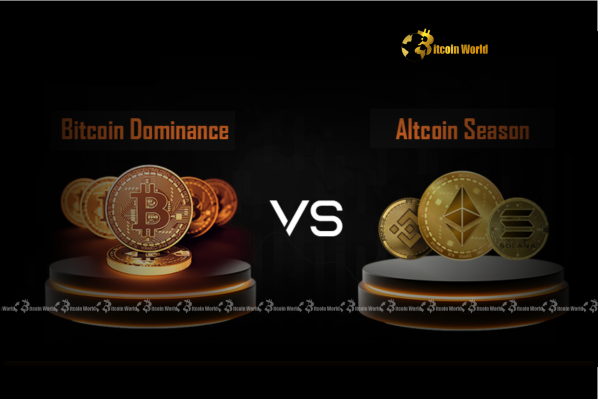BitcoinWorld

USD KRW: Citi’s Crucial Forecast Amidst South Korea Currency Talks
For those navigating the dynamic world of cryptocurrencies, understanding the broader macroeconomic landscape, including Forex markets, is crucial. Currency fluctuations between major global players can signal shifts in economic stability, trade dynamics, and investor sentiment – all factors that indirectly influence the crypto market. A significant development catching the attention of financial analysts is Citi’s recent Forex forecast predicting a potential drop in the USD KRW exchange rate. This forecast comes as the United States and South Korea engage in discussions regarding currency provisions, a move that could have tangible effects on the value of the South Korea currency.
Why Are US-South Korea Currency Talks Happening?
Discussions around currency provisions, especially between major trading partners like the US and South Korea, are not new. They often stem from a desire to enhance financial stability and liquidity. In this context, the talks are reportedly centered on establishing a potential bilateral currency swap line. Here’s why this is significant:
- Enhancing Liquidity: A swap line allows central banks to exchange currencies, providing a backstop of foreign currency liquidity during times of market stress. For South Korea, a USD swap line provides access to dollars if needed, stabilizing its financial system and preventing sharp declines in the won during crises.
- Market Stability: The mere existence or even the discussion of a swap line can instill confidence in the market, reducing speculative pressure against the won and promoting a more stable USD KRW exchange rate.
- Historical Context: The US Federal Reserve previously had temporary swap lines with various central banks, including the Bank of Korea, during the 2008 financial crisis and the COVID-19 pandemic to address global dollar shortages. These past arrangements proved effective in calming markets.
While the current talks are reportedly focused on a potential provision mechanism rather than immediate intervention, the dialogue itself signals a level of cooperation aimed at managing currency volatility. This diplomatic engagement is a key factor influencing Citi’s view on the future direction of the South Korea currency.
What Does Citi’s Forex Forecast Predict for USD KRW?
Citi’s analysis suggests that the prospect of these currency provision talks, potentially leading to a swap line or similar arrangement, reduces the likelihood of significant won depreciation. By providing a potential safety net for dollar liquidity, the need for the won to weaken sharply to attract capital or manage external shocks is diminished. The Citi forecast specifically anticipates a lower value for the USD KRW pair, meaning it expects the South Korean Won to strengthen relative to the US Dollar.
Several factors likely underpin this Citi forecast:
- Reduced Tail Risk: The primary benefit of a potential swap line is mitigating extreme downward pressure on the won during global downturns. This reduction in ‘tail risk’ makes the won a more attractive currency holding.
- Policy Coordination Signal: The talks themselves indicate a willingness from both the US and South Korea to coordinate on financial stability matters. This can be interpreted positively by the market.
- Current Account Strength: South Korea’s economic fundamentals, including its current account balance (reflecting trade and income flows), play a significant role. A robust current account can support a stronger won.
- Global Dollar Environment: While the talks are specific, the broader global environment for the US Dollar also matters. Factors like US interest rate policy, inflation, and global risk sentiment all impact the USD KRW rate.
The convergence of these factors, with the currency provision talks acting as a potential catalyst for reduced volatility and increased confidence in the South Korea currency, forms the basis of Citi’s prediction for a lower USD KRW.
Navigating the Implications: Benefits and Challenges
A lower USD KRW rate presents different implications for various market participants and the economies involved.
Potential Benefits:
- For South Korea: A stronger won (lower USD/KRW) makes imports cheaper, helping to control inflation. It also reduces the cost of servicing foreign-denominated debt. Increased financial stability can attract foreign investment.
- For US Consumers/Importers: Korean goods become less expensive in dollar terms.
- For Global Stability: Reduced volatility in a major emerging market currency contributes to overall global financial stability, which is indirectly positive for risk assets, including potentially cryptocurrencies, as it signals less systemic stress.
Potential Challenges:
- For South Korean Exporters: A stronger won makes Korean exports more expensive for foreign buyers, potentially hurting competitiveness.
- For US Exporters/Investors in Korea: Korean goods/assets become more expensive in dollar terms.
- Market Speculation: While the talks aim for stability, market participants might still speculate on the outcome of the talks or the timing/nature of any potential agreement, leading to short-term volatility around news events.
- Talks Collapse: If the currency provision talks fail or yield less than expected, it could reverse positive sentiment and potentially lead to renewed pressure on the won.
Understanding these push and pull factors is essential when interpreting the Citi forecast and its potential real-world impact.
What Actionable Insights Can We Draw?
Based on the Citi forecast and the context of the Currency talks, market participants can consider several points:
- Monitor Talk Progress: Keep a close watch on official announcements regarding the US-South Korea discussions. Any concrete steps towards a swap line will likely reinforce the positive sentiment for the won.
- Watch Economic Data: Pay attention to key economic indicators from both the US and South Korea, such as inflation rates, GDP growth, trade balances, and central bank statements (Federal Reserve and Bank of Korea). These fundamentals will continue to influence the USD KRW rate regardless of the talks.
- Assess Risk Appetite: Global risk sentiment plays a large role in currency movements, especially for emerging market currencies like the won. Periods of high global risk tend to favor the US Dollar (a safe haven), potentially pushing USD KRW higher, while risk-on environments can support currencies like the won.
- Consider Hedging: Businesses or investors with exposure to the South Korea currency should evaluate potential hedging strategies to mitigate currency risk, regardless of the forecast.
While a Forex forecast like Citi’s provides valuable insight, it’s one piece of a complex puzzle. A holistic view incorporating geopolitical developments, economic data, and central bank actions is necessary for informed decision-making.
Concluding Thoughts on USD KRW and Global Finance
Citi’s prediction for a lower USD KRW, grounded in the positive implications of potential US-South Korea currency provision talks, highlights the interconnectedness of global finance. These discussions underscore the importance of international cooperation in maintaining financial stability, a factor that resonates even within the seemingly separate world of digital assets. While the crypto market has its own drivers, external macroeconomic forces, including major currency pair movements and the stability of national financial systems, can influence overall market sentiment and liquidity. The potential for a more stable South Korea currency, supported by international agreements, is a development worth noting for anyone tracking global economic health and its potential ripple effects.
To learn more about the latest Forex market trends, explore our article on key developments shaping US Dollar liquidity.
This post USD KRW: Citi’s Crucial Forecast Amidst South Korea Currency Talks first appeared on BitcoinWorld and is written by Editorial Team





